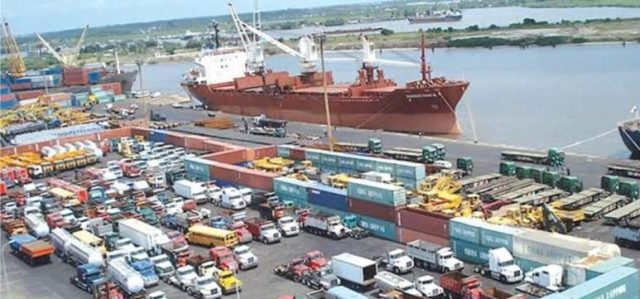
…Greater incentives for smuggling
…More industries that are dependent on the imported raw materials may shut down.
…Customs revenue may decline as imports through official channels become difficult.
MON, DEC 11 2023-theGBJournal|The recent upward review of customs exchange rate for computation of import duty from N783 to N952/$ will make the cost of importation through official channels even more prohibitive, the Centre for the Promotion of Private Enterprise (CPPE), has said while evaluating the policy rolled out by the Central Bank of Nigeria (CBN) on November 14, 2023.
The CBN had on June 24, 2023, adjusted the exchange rate from N422.30/$ to N589/$. On July 6, it was re-adjusted to N770.88/$, and again on November 14, it was re-adjusted to N783.174/$, and now reviewed to N951.941/$.
According to the CPPE, these increase may result in the following unintended outcomes:
-Greater incentives for smuggling
-More industries that are dependent on the imported raw materials may shut down.
-Customs revenue may decline as imports through official channels become difficult.
-Worsening an already bad inflation situation.
-Worsening an already bad poverty situation and the welfare conditions of the citizens.
-Heightened corruption vulnerabilities in the international trade ecosystem.
-Increase in the influx of substandard products amid high and increasing cost of products.
”This will worsen the already prohibitive production and operating costs for businesses in the country.
It would also inflict more pains on the citizens, erode profit margins, reduce purchasing power and put the survival of businesses at an elevated risk.
The frequent changes in rates is also creating serious issues of uncertainty for investors and making the international trade process increasingly unpredictable.
Paradoxically, only recently, the CBN governor, at the CIBN dinner, stressed the importance of giving economic policies a human face. He stated among other thing, that “…we need to develop stronger frameworks for measuring the human condition and ensure that policymakers and business leaders pay as much attention to these measures as they do to macroeconomic indicators”
Already businesses are contending with an incredibly difficult operating environment arising from severe macroeconomic headwinds.
The persistent currency depreciation is making access to intermediate products very difficult for manufacturers, energy cost remains very high, purchasing power is weak, investors confidence is declining and consumer confidence is on the downward trend.
”This is not a good time for the CBN to increase the exchange rate for the computation of import duty and the clearing of cargo by importers,” the CPPE noted.
”This review will impact the cost of all imports, including raw materials for manufacturers, pharmaceutical products, machineries, energy products, petroleum products and many more.
This will make a bad situation worse for investors in the economy. It will worsen the misery of the citizens amid an excruciating inflationary condition.”
The CPPE strongly appeals to the CBN and the Coordinating Minister of the Economy to review the increase. It noted that trade policy measures should not be subjected to the full vagaries of the philosophy of market forces.
”The CBN should allow for a concessionary rate for the computation of import duty to protect the economy and the citizens from the reality of unbearable inflationary pressures.
We propose that going forward, CBN should fix the customs duty rate at 20% less than the official exchange rate in the light of the prevailing harsh economic conditions.”
X-@theGBJournal|Facebook-the Government and Business Journal|email:gbj@govbusinessjournal.com|govandbusinessj@gmail.com









